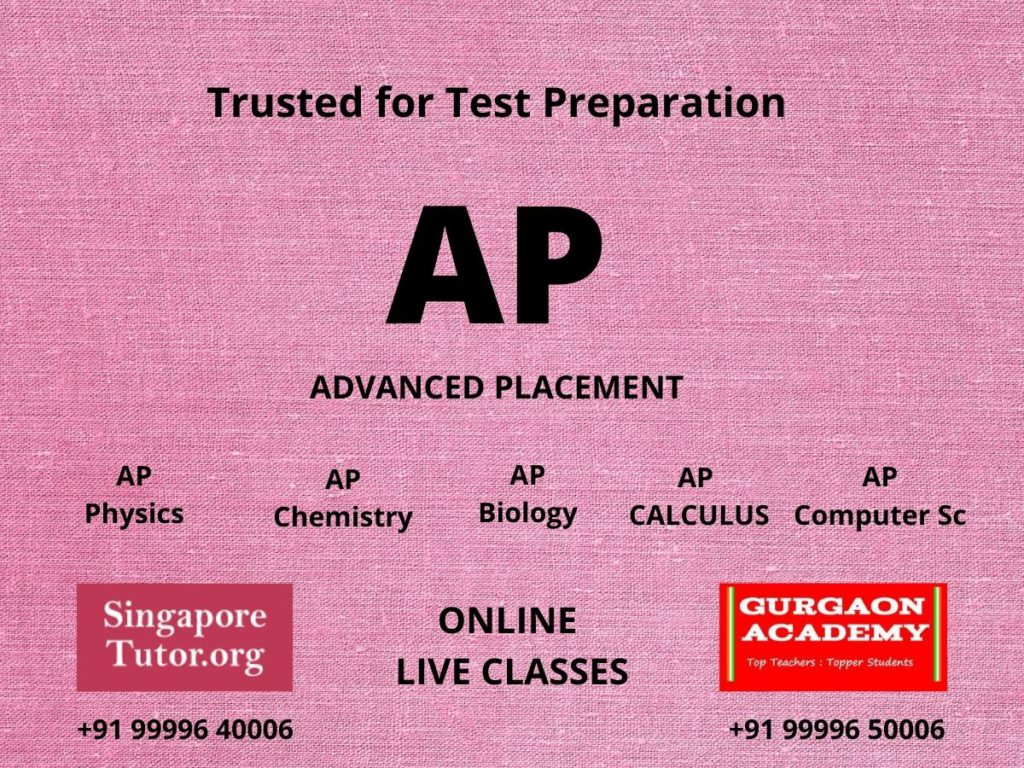AP Chemistry
Course Content
Unit 1: Atomic Structure and Properties
You’ll learn about the composition of atoms and ways scientists measure and categorize these molecular building blocks.
Topics may include:
- Moles and molar mass
- Mass spectroscopy of elements
- Elemental composition of pure substances
- Composition of mixtures
- Atomic structure and electron configuration
- Photoelectron spectroscopy
- Periodic trends
- Valence electrons and ionic compounds
On The Exam
7%–9% of exam score
Unit 2: Molecular and Ionic Compound Structure and Properties
You’ll discover the range of chemical bonds and how their structure can affect the properties of the molecules created.
Topics may include:
- Types of chemical bonds
- Intramolecular force and potential energy
- Structure of ionic solids
- Structure of metals and alloys
- Lewis diagrams
- Resonance and formal charge
- VSEPR and bond hybridization
On The Exam
7%–9% of exam score
Unit 3: Intermolecular Forces and Properties
You’ll explore how atoms come together to create solids, liquids, and gases, and how subatomic forces govern the properties of everything around you.
Topics may include:
- Intermolecular forces
- Solids, liquids, and gases
- Kinetic molecular theory
- Solutions and mixtures
- Photoelectric effect
On The Exam
18%–22% of exam score
Unit 4: Chemical Reactions
You’ll learn how to differentiate physical and chemical processes, and how to measure and express chemical reactions via chemical equations.
Topics may include:
- Introduction for reactions
- Net ionic equations
- Representations of reactions
- Physical and chemical changes
- Stoichiometry
- Types of chemical reactions
On The Exam
7%–9% of exam score
Unit 5: Kinetics
You’ll explore various methods to observe the changes that occur during a chemical reaction and the effects of a series of reactions.
Topics may include:
- Reaction rate
- Introduction to rate law
- Elementary reactions
- Collision model
- Introduction to reaction mechanisms
- Multistep reaction energy profile
- Catalysis
On The Exam
7%–9% of exam score
Unit 6: Thermodynamics
You’ll learn about energy changes in chemical reactions and how a transfer of energy can change a substance’s physical qualities.
Topics may include:
- Endothermic and exothermic processes
- Heat transfer and thermal equilibrium
- Heat capacity and calorimetry
- Energy of phase changes
- Introduction to enthalpy of reaction
- Enthalpy of formation
- Hess’s law
On The Exam
7%–9% of exam score
Unit 7: Equilibrium
You’ll chart how chemical reactions change over time, what causes substances to reach equilibrium, and how systems react when that equilibrium is disturbed.
Topics may include:
- Introduction to equilibrium
- Calculating the equilibrium constant
- Calculating equilibrium concentrations
- Introduction to Le Châtelier’s principle
- Introduction to solubility equilibria
- pH and solubility
- Free energy of dissolution
On The Exam
7%–9% of exam score
Unit 8: Acids and Bases
You’ll learn more about pH, the qualities and properties of acids and bases, and how they interact in chemical reactions.
Topics may include:
- Introduction to acids and bases
- pH and pOH of strong acids and bases
- Acid-base reactions and buffers
- Molecular structure of acids and bases
- pH and pKa
- Properties of buffers
On The Exam
11%–15% of exam score
Unit 9: Applications of Thermodynamics
You’ll be introduced to the concept of “thermodynamic favorability” for reactions, meaning how likely they are to occur given energy changes and environmental factors.
Topics may include:
- Introduction to entropy
- Gibbs free energy and thermodynamic favorability
- Thermodynamic and kinetic control
- Free energy and equilibrium
- Galvanic (voltaic) and electrolyte cells
- Electrolysis and Faraday’s law
On The Exam
7%–9% of exam score
(Source url: https://apstudents.collegeboard.org/) Disclaimer: We are not related to College Board.
Private Tutoring (Home Tutoring) for AP CHEMISTRY
It is for everyone who can prefer to study at home or at desired location. Whether you need comprehensive preparation or a boost in a few areas we’ll create a personalized plan that fits into your busy schedule. Face-to-face, personalized tutoring at your home or at another convenient location will help suit you. You set the schedule, and we’ll create your preparation plan for you.
Online Tutoring for AP CHEMISTRY
If you have a busy schedule or simply like the personalized attention you get working one-on-one, online private tutoring is right for you. We give one-on-one coaching from our most experienced and sought-after tutors, regardless of your location. For this you need only a computer/laptop and an Internet connection. You will feel a cutting-edge virtual classroom experience which extends beyond the classroom, to make your study process even easier and more efficient. Live online classes are conducted using the most advanced online learning platform in the industry.
Flexible Start Dates and Scheduling
Since our programs are completely customized, our students can start any time. We will put together the right program to take you from your start date to the day of your test, making the best use of time available. Additionally, you will have the freedom to schedule tutoring sessions on your schedule (including nights and weekends). For optimal results, students should plan to study for the AP CHEMISTRY for 3-5 months. However, we can design shorter or longer-term programs as well.
Complete Coaching for AP Chemistry: ONLINE LIVE CLASSES
- Full course covered for AP Chemistry Test
- Dynamic and Expert Faculties
- Qualified and competent Teachers
- Fully Targeted Exam Based Coaching
- Each Topic to be discussed in Detail
- Detailed Formulas and shortcut tricks
- Worksheet Practice Questions on Each topic
- Revision Tests (5 Mock Tests to be done by student)
Mode of Study:
- One-on-One Online lesson on Skype
- One-on-One Home Tuition (Selected areas only)
Course Duration:
- AP Chemistry: 30-50hrs
Course Fee: $50-$70/hour.
Want to Join, Contact Us:
SingaporeTutor.org
Phone: +91 99996 40006(Whatsapp/Call)



